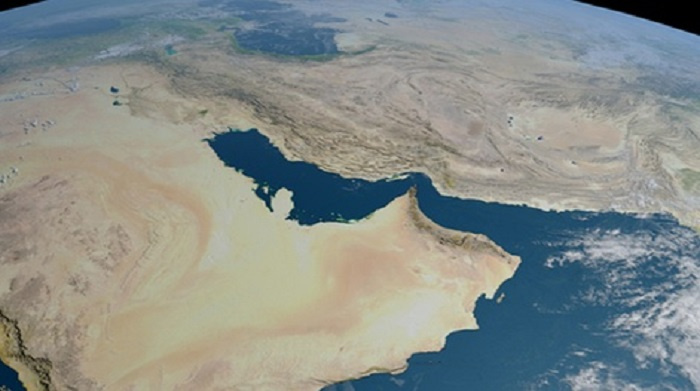After the Deal: Collective Security in Persian Gulf

The landmark Iran nuclear agreement is bound to have significant ramifications in terms of inter-regional relations in the Middle East, particularly in the Persian Gulf region. In his recent tour of the Middle East, U.S. Secretary of State John Kerry has emphasized the nuclear agreement's importance for regional peace and security. This view is fully shared by his Iranian counterpart, Mohammad Javad Zarif, who has toured the neighboring Persian Gulf countries, hammering the point on the need for greater regional cooperation to tackle the endemic problems of terrorism and instability that have wreaked havoc recently.
In fact, President Hassan Rouhani, who is credited with initiating a low security cooperation agreement with Saudi Arabia in the past, is fully committed to the lofty objective of regional unity and cooperation, to transcend the Sunni-Shiite fault line, and to replace the existing political bifurcations with a new era of regional cooperation and even integration on both economic and security fronts.
Fortunately, most member states of the Persian Gulf Cooperation Council (PGCC) have endorsed the nuclear agreement as a big plus for the region and it now depends on Saudi Arabia to follow suit. President Rouhani has singled out the nuclear deal's potential contribution to resolving the present conflicts in Yemen and Syria and, therefore, the ball is in the Saudi laps and it is vitally important that Riyadh does not miss the new opportunity to upgrade its relations with Tehran, which can be instrumental in ending the Saudi quagmire in Yemen. The Saudi fear that the post-sanctions Iran will grow too powerful for its Arab neighbors and so on is a tissue of misperception that ignores Iran's good-neighborly intentions that warrant fresh Iran-Saudi dialogue on a broad range of issues, including the stalemated Middle East peace process.
There is, of course, a long historical background to the current context of Iran-Saudi relations, including the "twin pillar" modality of several decades ago, that predated the PGCC's creation, as basically a counterweight to post-revolutionary Iran. Learning from the rather tumultuous modern history simply means that both countries need to avoid demonizing each other and to avoid quick fixes that pose no solution to the region's complex repertoire. Instead, Iran and Saudi Arabia must build on their zones of agreement and enlarge them through smart diplomacy and political foresight. The crisis in Yemen has reached catastrophic proportions and millions of innocent lives are at risk, all the more reason to have a direct Iran-Saudi channel of communication that utilizes the benefits of 'quiet diplomacy'.
With respect to the idea of collective security, which was championed by the former president Hashemi Rafsanjani, the stage is now set for renewed regional interests in it, given the regional nature of certain issues of mutual interest, such as the threat of terrorism. In fact, both Daesh and Al-Qaeda have taken advantage of and benefited from the absence of close inter-regional cooperation, which can be brought about simply by following the prescriptions of collective security. This would mean, among other things, a new security forum that would include all the Persian Gulf littoral states without excluding any one. Also, it would require intelligence sharing and new institutional mechanisms to collectively deal with issues of regional insecurity.
Without doubt, the important prerequisites for collective security in Persian Gulf include confidence-building measures that would boost the potential for collective action vis-a-vis common threats. Case in point, the countries' coast guards can engage in collective drills on an occasional basis that would send the right signal about their intentions toward each other. Collective efforts on the various environmental projects of the Persian Gulf reflect yet another example.
One of the concerns of the PGCC states with respect to the Iran-led idea of collective security is that Tehran seeks to cause the departure of foreign forces as a condition of collective self-reliance. But, while Iran considers the presence of foreign forces as "provocative" and inimical to regional security, in fact Iran's approach toward this matter is a little bit more complicated and should not be misunderstood. Hypothetically speaking, Tehran might be amenable to the participation and contribution of certain out of area institutions, such as the UN or OSCE (Organization for Security and Cooperation in Europe), in facilitating the emergence of a collective security arrangement in the Persian Gulf. Needless to say, a prior Iran-OSCE dialogue would be necessary.
To conclude, we are witnessing a brave new era in regional relations in Persian Gulf and the prospects for regional cooperation have definitely received a huge boost as a result of the nuclear agreement. One only hopes that the politicians and diplomats from the region do not miss the chance to fully realize the latent potential of the nuclear deal, with respect to cooperation on security and other dimensions.

